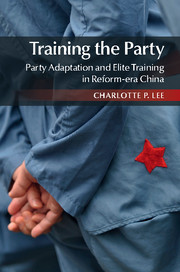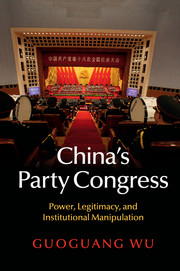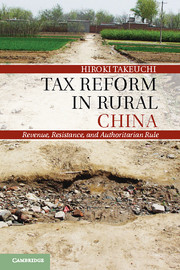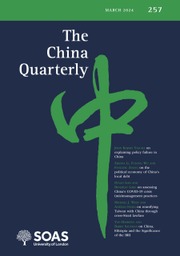Training the Party
Charlotte P. Lee considers organizational changes taking place within the contemporary Chinese Communist Party (CCP), examining the party's renewed emphasis on an understudied but core set of organizations: party-managed training academies or 'party schools'. This national network of organizations enables party authorities to exert political control over the knowledge, skills, and careers of officials. Drawing on in-depth field research and novel datasets, Lee finds that the party school system has not been immune to broader market-based reforms but instead has incorporated many of the same strategies as actors in China's hybrid, state-led private sector. In the search for revenue and status, schools have updated training content and become more entrepreneurial as they compete and collaborate with domestic and international actors. This book draws attention to surprising dynamism located within the party, in political organizations thought immune to change, and the transformative effect of the market on China's political system.
- Provides a framework for understanding the significance of organizational reforms in contemporary China's Communist Party
- Presents and explains Chinese politics through a combination of qualitative and quantitative data
- Makes comparative references beyond the China case and will appeal to those interested in theories of organizations, politics, and sociology
Reviews & endorsements
"Charlotte Lee probes the core institution of China's political system - the party - through an original examination of party schools, organizations that train and socialize officials throughout the country. Marshaling extensive fieldwork and new statistical data, Lee paints an exquisitely detailed picture of the party’s entrepreneurial adaptation to market reforms as well as the evolution of bureaucratic training. Importantly, this book reveals there can be avenues of political change without formal democratization in authoritarian regimes."
Yuen Yuen Ang, University of Michigan
"The Chinese Communist Party has been in power now for over six decades, time in which China as a political system and society has changed radically. How has the party managed to adapt and stay in power so long? Charlotte Lee addresses this important question in this important study of the party school system. A major addition to the literature."
Joseph Fewsmith, Boston University
'Lee’s book provides a comprehensive understanding of how marketization has changed cadre training, and allowed the CCP to use the party school system to adapt to new governance challenges and maintain the elite cohesion needed by single-party regimes. … Despite the complexity, all of this information is incredibly valuable and I consider the book to be a great reference guide to understanding the party school system, as well as a contribution to the mechanisms underpinning the resilience of the CCP.' Jessica C. Teets, Journal of Chinese Political Science
Product details
July 2015Hardback
9781107090637
264 pages
136 × 160 × 20 mm
0.53kg
23 b/w illus. 43 tables
Available
Table of Contents
- 1. Introduction
- 2. The organizational landscape
- 3. Managing the managers
- 4. Fusing party and market
- 5. The entrepreneurial party school
- 6. Adaptation measured
- 7. Conclusion: risks and limits to party reforms
- Appendices: A. Number of party schools, by locale and national share of leading cadres
- B. Note on sources and research methods
- C. Central Party School organization
- D. City Z training allocations, 2008
- E. Descriptive statistics and robustness tests of PSM presented in Chapter 3
- F. Central Party School Mid-Career Cadre Training Classes descriptive data
- G. International partnerships, central and provincial-level party schools
- H. Categories for coding training syllabi.









